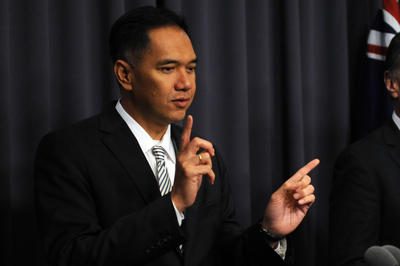And, at the conclusion of the Congress, the participants stated their aim to mobilise business leaders so that the Round can deliver results for the global economy.
The completion of the Doha Round at the earliest possible opportunity is a must for several reasons.
First, if the Round is concluded, the world can implement the tariff and subsidy reforms which are already in the draft texts and so reap the benefits. Second, completion would ensure the viability of the rules-based multilateral trading system. If multilateral solutions are delayed, national governments will resolve trade and investment problems in other ways, either through unilateral measures, or through bilateral and regional trade pacts. Also, failure of the Doha Round would cause irreparable harm to the WTO’s credibility as a negotiating forum, which could undermine its valuable dispute settlement mechanism.
Third, the agreement is expected to provide a cushion against future protectionism — it could consolidate the large amount of unilateral liberalisation that has taken place since the Uruguay Round in the 1990s. Fourth, the deal would bring in large-scale reforms in agricultural trade by binding subsidy levels in the developed world and eliminating export subsidies. Fifth, estimates suggest that the conclusion of the Round could boost world trade by around US$360 billion, and the deal, if struck, could be one of the most ambitious packages of trade liberalisation ever negotiated multilaterally.
But the world will not see these gains if the stalemate is not broken. The stalemate largely concerns developed countries’ reluctance to make considerable reductions in their trade-distorting agricultural subsidies, and unbalanced proposals for further industrial tariff reductions. Developing countries, on the other hand, face a number of challenges when they attempt to meet their development needs. These include ensuring decent growth rates, the reduction of high levels of poverty, job creation, manufacturing-base expansion and resource management. One way of achieving these objectives for the developing countries is to get fair access to the developed markets for their agriculture and industrial goods. Consequently, the developing countries remain reluctant to carry forward negotiations on other fronts without first achieving a breakthrough in agriculture and Non-Agricultural Market Access (NAMA) negotiations.
It is not clear whether the WTO negotiations will challenge unbalanced trade rules or whether they will continue within the current economic paradigm that essentially hinders development in developing countries. The question is particularly pertinent in a time of global economic and environmental crisis. At the moment, WTO members, especially developing countries, hold that agreement on agriculture and non-agricultural market access is a condition for negotiations on other issues, such as services, trade in environmental goods/services, trade facilitation and geographical indications. These roadblocks are indicative of the questions being raised regarding the WTO’s ability to promote fair and balanced multilateral trade rules that address the past and current inequities which developing countries face.
November 2001 to December 2011 saw a spate of failed attempts to revive the WTO Doha Negotiations, so all hopes are pinned on the 9th WTO Ministerial Conference in Bali, Indonesia, scheduled for December 2013. One relevant plea comes from the outgoing Director General of the WTO, Pascal Lamy, who has repeatedly requested that all members be reasonable. He said that the Ministerial should focus on unresolved issues that hamper the trade situation in many countries, rather than making new commitments.
Despite the GFC and subsequent trade protectionism, the host country Indonesia believes that the multilateral trading system plays a vital role in ensuring fair global trade and stabilising world economic growth. At the WTO Mini Ministerial Meeting of Trade Ministers held on 26 January 2013, the Indonesian Trade Minister affirmed that Indonesia will help produce an agreement that can regain the world’s trust in the multilateral trade system. Indonesia promises to initiate forceful negotiation on two major issues in the 9th Ministerial Conference at Bali — the facilitation of trade and the Least Developed Countries’ Package.
Another positive sign for the future of the Doha Round is the number of countries which are waiting to become members. Also, in spite of the storm over the WTO in recent years, several new members gained entry to the organisation at the 8th Ministerial Conference.
Great benefits can flow from a successful conclusion to the Doha Round. It is now up to the 9th WTO Ministerial to reach an amicable settlement which can realise the expectations of developed, developing and the least developed countries.
Geethanjali Nataraj is Senior Fellow at the Observer Research Foundation, New Delhi.

